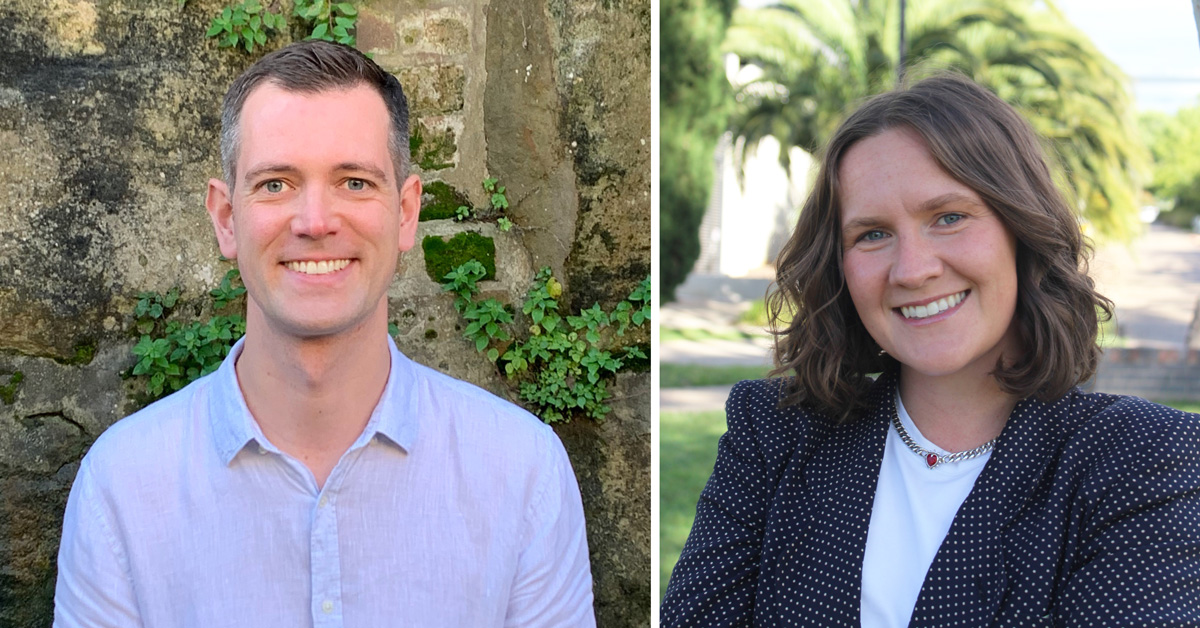
Dr Joel Barnes from the University of Queensland and Dr Jess Urwin from the University of Tasmania are the recipients of the Australian Academy of Science's 2025 Moran Award for History of Science Research.
Cultural anthropology and human evolution in the Australian classroom: science, pedagogy and politics
Dr Barnes will be supported by funds from the award to research the work of the influential Sydney primary school teacher Margaret Simpson (1937-2014), who was inspired by the American-made upper primary resource Man: A Course of Study (MACOS) to create a similar pedagogical tool for Australian students. MACOS was an inquiry-based resource in which children investigated the nature of human beings in an evolutionary frame, considering their continuities with and distinctiveness from non-human animals.
Simpson created People of the Western Desert, which used ethnographic films of two Pintupi families of central Australia to teach anthropological knowledge of Aboriginal cultures at a time of significant change in Australian Indigenous-settler relations.
The kit was widely taught across New South Wales and the Australian Capital Territory and used in some schools across other states. While controversies over MACOS's secular and evolutionary vision of the human, especially in Queensland, have been widely examined, Simpson's adaptation of MACOS's pedagogical methods and inquiry questions to the Australian social and political environment has received little attention from historians.
This award will support archival research trips to Sydney and Canberra and help facilitate the donation of relevant privately held archival collections to a suitable public archive.
"I'm honoured to receive the Moran Award for History of Science Research, which will enable me to explore the teaching of cultural anthropology and human evolution in Australian classrooms in the 1970s and 1980s," Dr Barnes said.
Radioactive roots and routes: tracing the imperial scientific networks of Australian radioactive minerals, 1940s-1960s
Dr Urwin's project seeks to account for the role played by key figures in Australian science in Australia's searches for, exploitation of, and attempts to export radioactive materials in the mid-20th century.
British archives (held in the National Archives in London) show that Professor Mark Oliphant, for example, was integral to the British Government's investment in Australian radioactive mineral prospecting during and after World War II and was highly influential in encouraging the Australian state and federal governments to establish a home-grown radioactive mineral industry in the 1940s and '50s.
Yet few scholars - if any - have considered the role of reciprocal imperial scientific networks in encouraging the exploitation and exportation of radioactive minerals across the British Empire. Fewer still have accounted for Australia's role in this imperial exchange. This project seeks to rectify that, contributing to topical discussions of Australian uranium politics across the 20th century.
"I am delighted to have been selected as one of the recipients of the Moran Award, the generous funds from which will allow me to travel to consult the Academy of Science's Fenner Archives and other collections related to the history of uranium in Australia," Dr Urwin said.
"I plan to use this award to access the papers of scientists and others - many of which are held by the Academy - who were instrumental in developing nuclear science in Australia during the mid-20th century. These collections offer a window into the various roles - political, cultural, and scientific - played by Australian scientists in negotiations between Britain and Australia over uranium export and Commonwealth nuclear development more broadly."
About the award
The Moran Award for History of Science Research is aimed at postgraduate students and other researchers with expertise in the history of Australian science. Its purpose is to support access to archives that record the history of science in Australia, especially by younger researchers, and it can be used towards travel and accommodation costs. The award is biennial, and will next open for applications in February 2026.






